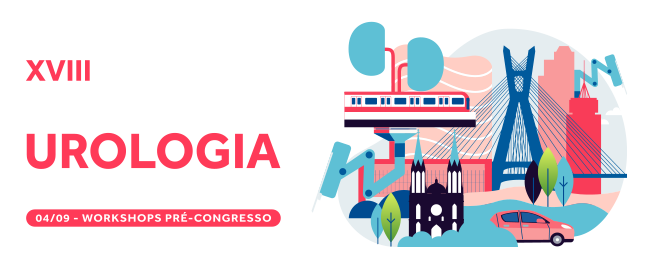Dados do Trabalho
Título
What is the effect of simulation-based training on the learning curve in ureteroscopy and percutaneous nephrolithotomy? A systematic review and meta-analysis
Resumo
Introduction and Objectives: Simulation has emerged as an effective tool during the initial stages of surgical training, offering a departure from traditional methodologies. This systematic review aims to identify the features of available simulators for URS and PCNL and assess their impact on the acquisition of surgical skills.
Methods: This review followed PRISMA guidelines, utilizing the PICO framework for study question formulation. A systematic search across multiple databases was conducted. Risk of bias was assessed using Cochrane ReviewManager (RevMan), and evidence quality was evaluated with the modified Oxford Centre for Evidence-Based Medicine assessment tool. A meta-analysis was performed for single-group studies, focusing on pre and post-intervention data, comparing time and Global Rate Scale scores. Effect size was calculated using standardized mean difference (d = post-pre intervention) with a random-effects model. Cochran's Q test and Higgins and Thompson's I² statistic assessed heterogeneity, and meta-regression studied platform type effects. Results not suitable for meta-analysis were presented narratively and in tables.
Results: The search retrieved 858 articles, of which 17 met the inclusion criteria. Fourteen studies examined URS, and three focused on PCNL. A meta-analysis of seven studies demonstrated a significant improvement in task completion times (p < 0.0001) and Global Rate Scale scores (p = 0.008) after simulation-based training in URS. The effect of the platform did not show statistical significance (p = 0.9139).
Conclusion: Our systematic review and meta-analysis provide evidence that simulation-based training has a positive impact on the acquisition of technical skills in endourology. The integration of simulation tools into surgical curricula should address validity, training duration, and budgetary constraints. A modular curriculum encompassing both technical and non-technical skills is recommended to ensure comprehensive surgical training.
Palavras Chave
Simulation training; Endourology
Área
Geral
Categoria
Revisão sistemática/metanálise
Autores
Caio de Oliveira, Gabriel Chahade Sibanto Simões, Arthur Degani Ottaiano, Lucas Mira Gon, Wilmar Azal Neto, Cassio Luis Zanettini Riccetto


 Português
Português English
English